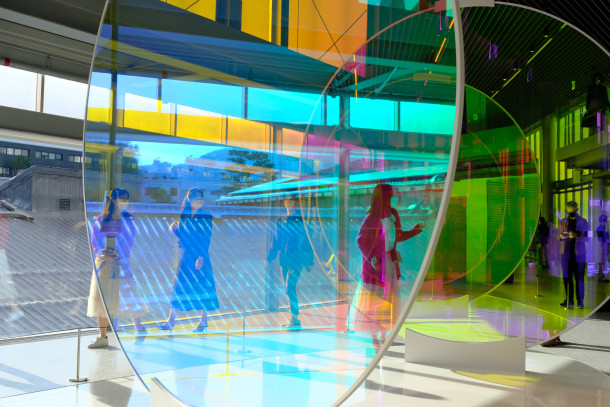News
ReIShaping Policies for creativity

Through the 4-year project ReIShaping Cultural Policies for the Promotion of Fundamental Freedoms and the Diversity of Cultural Expressions (2018-2022), funded by the Swedish International Development Cooperation Agency (SIDA), UNESCO supported Algeria, Bangladesh, Burkina Faso, Colombia, Ethiopia, Indonesia, Jamaica, Mali, Mauritius, Mongolia, Palestine, Peru, Uganda, Senegal, Tanzania, and Zimbabwe in reviewing regulatory frameworks and sector specific policies they have adopted in line with the UNESCO 2005 Convention on the Protection and Promotion of the Diversity of Cultural Expressions. In addition, how these countries promote the diversity of cultural expressions at national, regional, or local levels and at different stages of the cultural value chain (creation; production; distribution; participation) was also considered.
The project provided technical assistance to the 16 participating Member States to elaborate their national quadrennial periodic report (QPR). They mobilized a wide range of stakeholders including civil society organizations and media professionals in consultations, data collection and awareness raising activities. They hosted public presentations and open exchanges and dissemination of the QPRs among national and local cultural and creative industry (CCI) stakeholders. They multiplied policy dialogue opportunities and ultimately strengthened national monitoring processes. Mr Ziani-Cherif Ayad, Director of Gosto Theatre, Algeria, recalls of his experience in participating in the policy monitoring discussion that UNESCO organized in partnership with the Ministry of Culture of Algeria:
Thanks to the generous support of SIDA, and building on previous data provided by national QPRs globally, the third edition of the Global Report Re|shaping Policies for Creativity: Addressing culture as a global Public Good was released in February 2022.
From participatory policy monitoring to policy making
Building on the recommendations that included their QPRs and thanks to the policy dialogue mechanisms that were developed, the 16 participating countries conducted specific research, advocacy, and capacity-strengthening activities on emerging policy areas such as the digital environment, media diversity, gender equality and artistic freedom. They also organized a wide range of policy debates under the branding of the “UNESCO ResiliArt”. For example, Algeria led a series of ResiliArt debates on the Status of the Artist, while Mongolia organized the International Cultural and Creative Industry conference in 2021.
The project enabled important research and industry mapping such as: a study on gender equality in the audio-visual and publishing sectors in Colombia; a mapping of the film sector in Ethiopia; a study on the impact of COVID-19 as well as a mapping of the craft and music sectors in Bangladesh; two studies on the impact of COVID-19 and the digital environment in Palestine; a National Recovery Plan for the Arts and Culture adopted in Peru in April 2022; and a Media Diversity Monitoring Framework developed in Indonesia.
Capacity-strengthening initiatives were also successfully implemented, especially tackling key issues such as gender and media diversity. The project helped initiate an all-female training in cultural management as part of the Senegal Talent Campus, while in Ethiopia, a first training for women visual artists and the digital environment took place. A special workshop “Gender in Sahel” organized during the 2022 edition of the Dakar Biennale empowered participants from Senegal and Burkina Faso. In Mali, media diversity, the diversity of cultural expressions and peace building were addressed within training for media stakeholders. A peer-to-peer learning workshop between Mauritius, Ethiopia, Uganda, and Tanzania further discussed media diversity. The digital environment was specifically addressed in Jamaica during the national launch of the Global Report, while Zimbabwe hosted an awareness-raising workshop on the formalization and regulation of the film sector for academia and civil society organizations.
With the signing of the new Programme Cooperation Agreement with Sweden for 2022-2025, UNESCO will support 8 countries to engage in data collection, policy dialogue and policy monitoring; additionally, it will also support 3 countries to design gender-transformative measures for the cultural and creative sectors.







